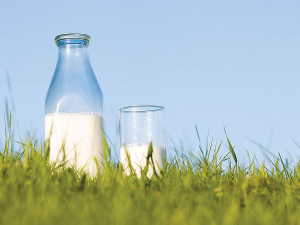Glut in global milk supply keeping prices down
The final Global Dairy Trade (GDT) auction has delivered bad news for dairy farmers.
 Dairy prices are on the rebound, with the last four Global Dairy Trade (GDT) auctions recording healthy price rises.
Dairy prices are on the rebound, with the last four Global Dairy Trade (GDT) auctions recording healthy price rises.
OPINION: After two tough years, farmers are finally seeing some light at the end of the tunnel.
Dairy prices are on the rebound, with the last four Global Dairy Trade (GDT) auctions recording healthy price rises. Whole milk powder prices have nudged above the US$3,000/tonne mark.
Fonterra responded by recently lifting its forecast Farmgate Milk Price range to $6.50 - $8/kgMS, with a new midpoint of $7.25/ kgMS, up 50 cents.
Last week, a Rabobank report delivered further good news; after extreme market volatility and record-high prices in recent years, global fertiliser prices are expected to settle in 2024.
While we are still some months away from 2024 – this year has been a much calmer year for the fertiliser market – and 2023 can be seen as a transition year, even with some remnants of all the market complications from 2022, according to Rabobank.
The bank’s models indicate a recovery in global fertiliser usage in 2023, up by around 3%, compared to the 7% drop in 2022. For 2024, the initial analysis suggests an increase in global fertiliser use of close to 5%.
However, the bank points out that local fertiliser prices are significantly lower than a year ago, but this would not necessarily lead to increased fertiliser usage across New Zealand farms over coming months.
Farm margins are incredibly tight across many New Zealand farming businesses due to lower commodity prices and ongoing elevated costs for other farm inputs – like fuel and feed – as well as higher interest costs.
DairyNZ recently updated the national breakeven forecast to $7.78/kgMS, an increase from $7.51kg/MS.
Many farmers may not be breaking even right now, but rising dairy prices and relief from expensive inputs like fertiliser hints that better days lie ahead.
There was much theatre in the Beehive before the Government's new Resource Management Act (RMA) reform bills were introduced into Parliament last week.
The government has unveiled yet another move which it claims will unlock the potential of the country’s cities and region.
The government is hailing the news that food and fibre exports are predicted to reach a record $62 billion in the next year.
The final Global Dairy Trade (GDT) auction has delivered bad news for dairy farmers.
One person intimately involved in the new legislation to replace the Resource Management Act (RMA) is the outgoing chief executive of the Ministry for the Environment, James Palmer, who's also worked in local government.
T&G Global says its 2025 New Zealand apple season has delivered higher returns for growers, reflecting strong global consumer demand and pricing across its Envy and Jazz apple brands.
President Donald Trump’s decision to impose tariffs on imports into the US is doing good things for global trade, according…
Seen a giant cheese roll rolling along Southland’s roads?